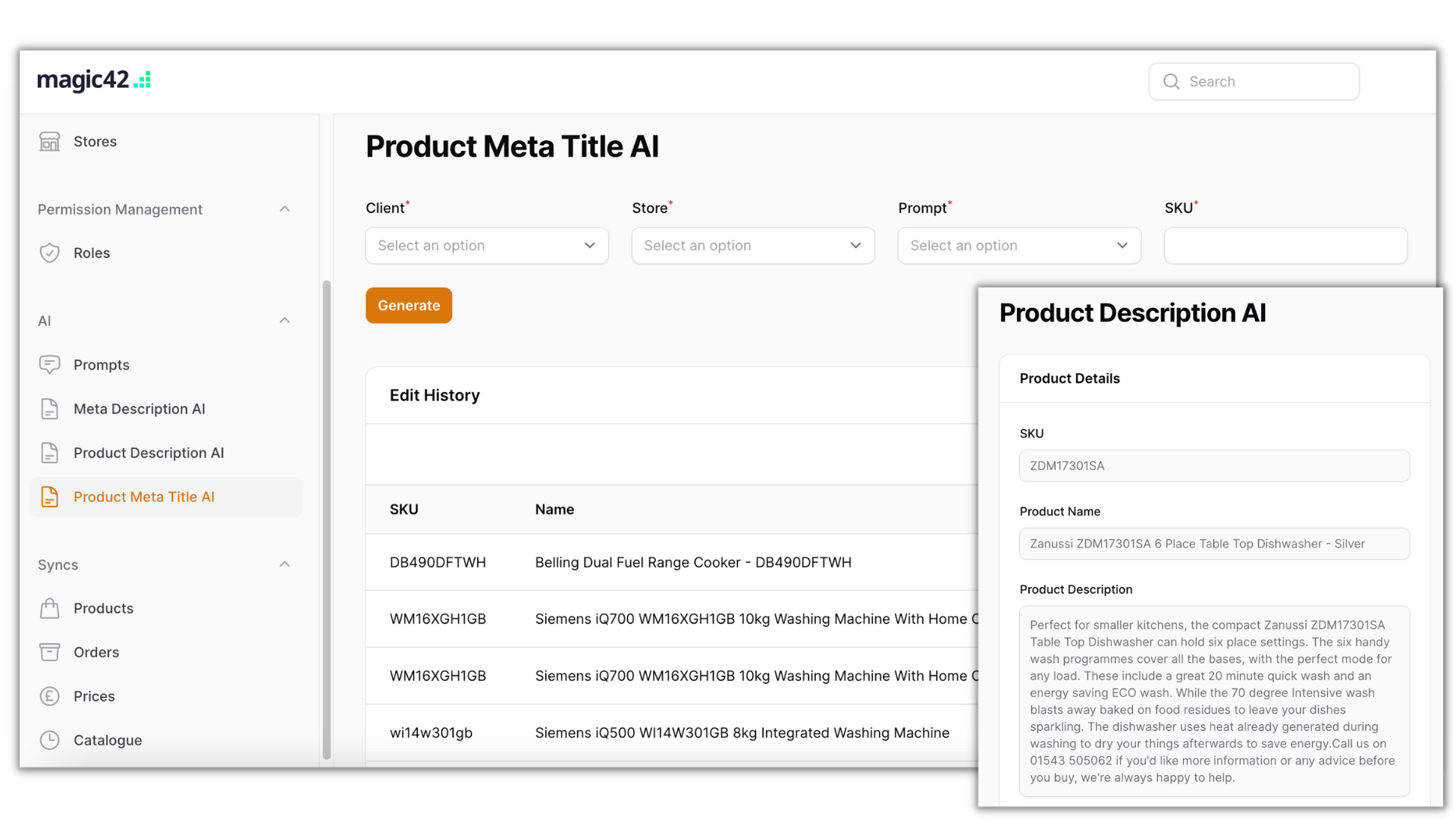
As technology evolves, many online retailers are now looking at how to benefit from AI in eCommerce. In the past couple of years, the industry has witnessed AI develop into a more sophisticated tool that can help businesses save time and better allocate resources. That includes us at magic42.
It’s because of our background as a retailer that we understand how productivity gains can make a huge difference to business performance. We know first-hand that it’s hard enough to grow and manage a site with thousands of SKUs, let alone having time in your team’s working week to re-optimise any existing SKUs to maximise Google search rankings. Wouldn’t it be great if there was a tool that could help reduce this time so that it could be spent on something more productive?
That’s why we’ve developed an AI tool to save time and energy for eCommerce businesses.
Our AI app features ways to swiftly enhance product data using AI. This can help your eCommerce website by aiding your team produce quality content that focuses on user intent. That means your product data is tailored to user queries and written in seconds, saving time and ultimately increasing team productivity.
In fact, here are five ways we’re using our AI tool in eCommerce to enhance products…
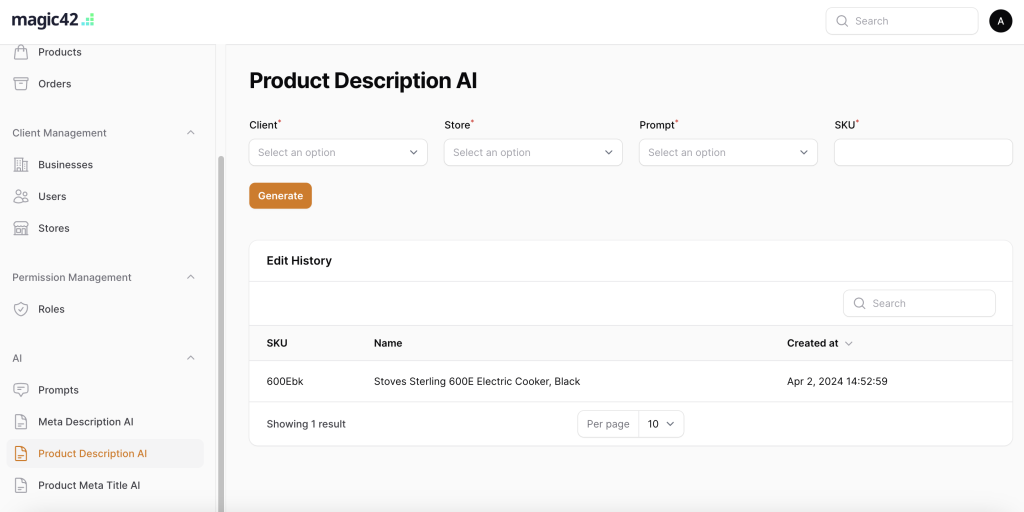
One thing our AI tool can do is enhance product descriptions.
In order to sell products online, we all know an eCommerce merchandising team or individual first needs to upload a list of product descriptions. However, an eCommerce business selling their own products may be heavily involved in drop-shipping, or an online retailer will sell other brands, meaning there will often be descriptions to upload provided by the supplier. These product descriptions can range from functional to complex, depending on the product and location of the supplier in the world. That will need to be uploaded to an eCommerce site from scratch, with time taken to fix mistranslations or make the description easier to digest.
Through our AI tool, we take the time out of fixing translation errors and streamlining product descriptions. That includes focusing on the product’s key features and benefits in a persuasive way to match them to customer problems. Not only that, but the tool can match a business’s brand tone of voice, keeping the product descriptions consistent in quality across the site. Our tool can do this by using all of the available product information stored against its fields, creating the best content.
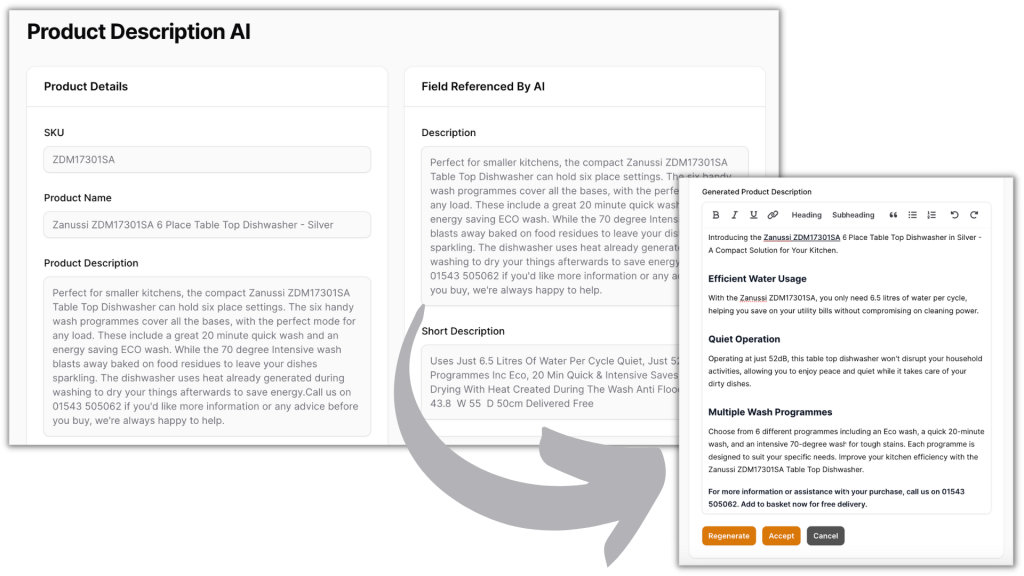
In Magento Open Source and Adobe Commerce, two of the platforms we support, you’ll also need to prepare a ‘short description’ which is displayed on the product details page as a summary of the product’s features.
When it comes to AI in eCommerce, our tool can write a short product description for you. The tool examines your existing product data and any existing information you have, then puts together a short description focusing on key selling points. This can then be used nearer the top of your product page for customers, taking the time and effort out manually doing this.

Product images all should be uploaded with image alt tags, which are written tags that help outline what the image is on web pages. There are many times where this is useful; the copy will be used for when the image fails to load on a page, for screen readers, as well as to help search engines crawl and give context to your web page. When it comes to eCommerce websites that use a myriad of products, image alt tags become incredibly important.
Image alt tags are often best combined with keywords and phrases that you want your page to rank for. For example, if you sell a hard, green iPhone case, then you will want all of those terms in your image alt text to match Search Engine Result Pages (SERPs). However, doing this for countless images is a necessary but very time consuming process. When you consider that each product should have multiple images, multiplied by the number of different products you’re selling, this becomes an immense task.
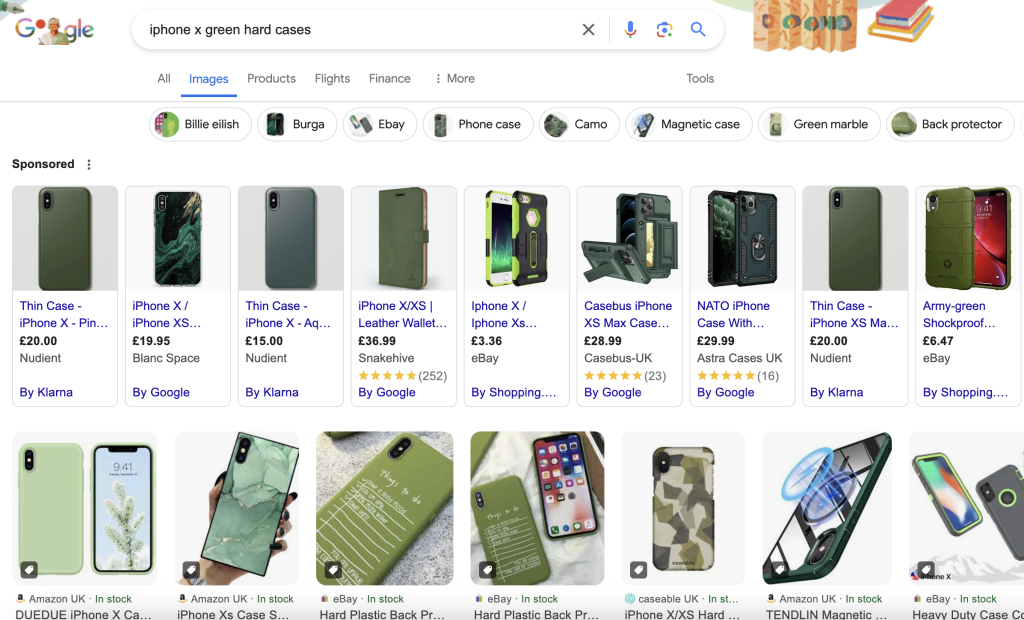
We’ve seen first-hand that AI in eCommerce can drastically speed up the customisation of image alt tags. That’s why we’ve built a way to generate image alt text in bulk, meaning you can create tags for multiple product images at once. This is simply a case of selecting your items and generating the SEO tag copy. It’s as simple as that.
Every web page requires a meta title. This title tag appears in SERPs, which are then matched to user search queries. As uploading a catalogue of products will create a whole host of new product web pages, that means an eCommerce business will need to create tailored meta titles for every product, including product titles, model numbers and other essential details that potential customers will search for. Optimising meta titles is a great technique to improve rankings and click-through routes, making the tool a great investment for your site’s organic performance.
By using AI in eCommerce, our tool can generate custom meta titles for each product at the touch of a button. The AI can create and promote the brand name, model number and a key feature (such as the colour or free delivery), alongside the company name if room is available. This is ordinarily a lot of consideration to keep within the meta title limit of 60 characters, but we’ve been able to streamline this process.
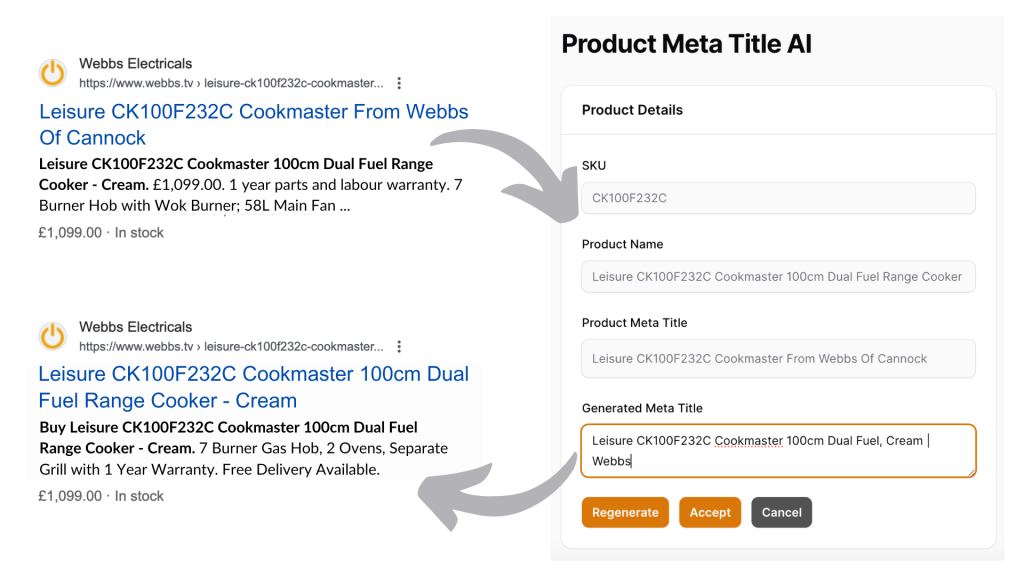
Each web page not only requires a meta title, but also a meta description to accompany it. A meta description is a 160-character description of what the page is about, usually displaying key information and keywords to match those queries in search engines. These will also need to be written by whoever uploads products to an eCommerce website, perhaps using a template with a brief call to action, such as ‘Buy the [product name] from [company name] with free delivery’.
However, the problem with using such a static meta description template is that it doesn’t make use of additional keywords which may be omitted from your product titles. Google Search Console is a useful tool for measuring search queries and how your web pages compare, but these additional terms could easily be left behind in such a template. That means your search page rankings could be negatively affected by missing these keywords in your meta descriptions.
Our app can put together an AI-generated meta description for each product, matching keywords and creating matching synonyms and match user search queries. Better yet, the tool will mention any free delivery or extended warranty if the product includes this, all in a suitable tone of voice and within 160 characters. These all work together to increase the likelihood of matching the product with SERPs, leading to increased visibility and potential sales.

Our eCommerce AI app (full name to come) is currently being fine-tuned to make sure it can do all the above and more for your eCommerce business.
AI is just one thing the tool can do, though. If you’re interested in our tool’s features and are looking to enhance your products with AI in eCommerce, then contact us today for more information.


